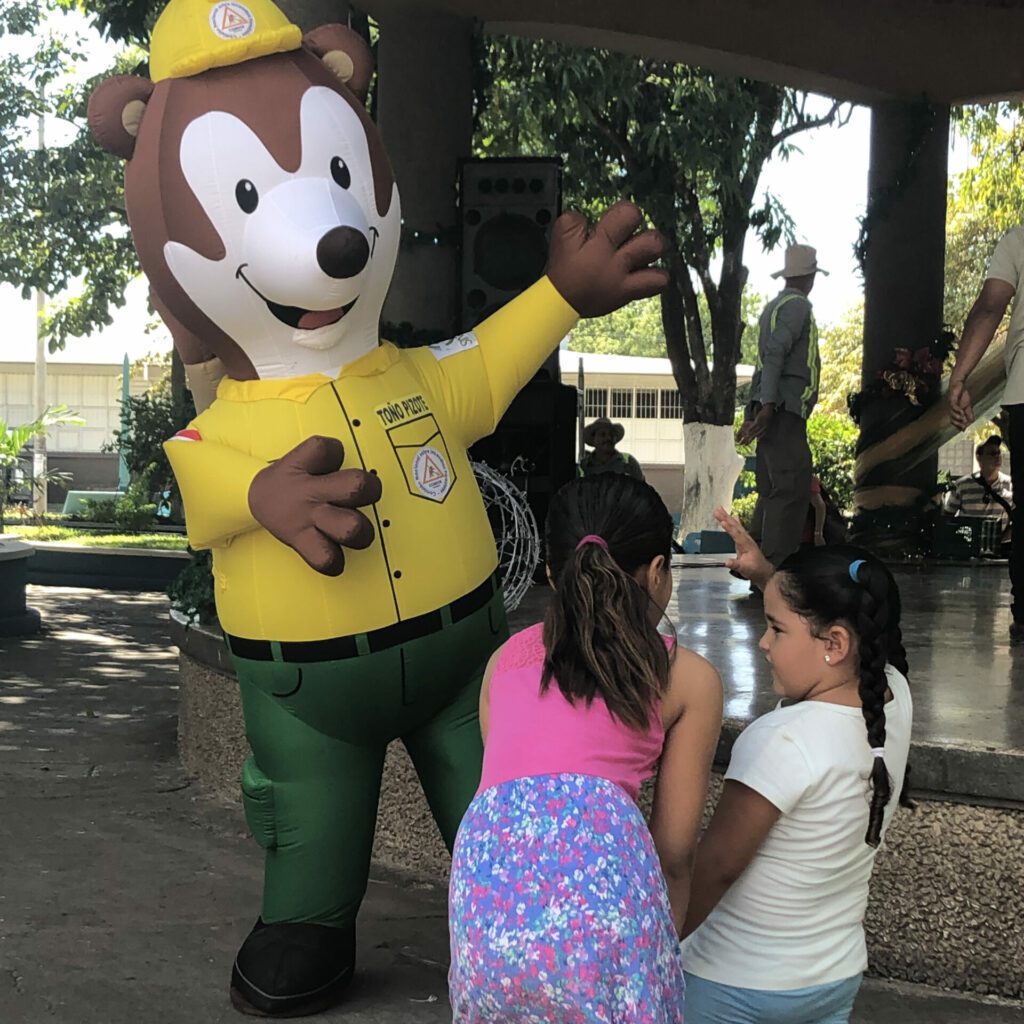
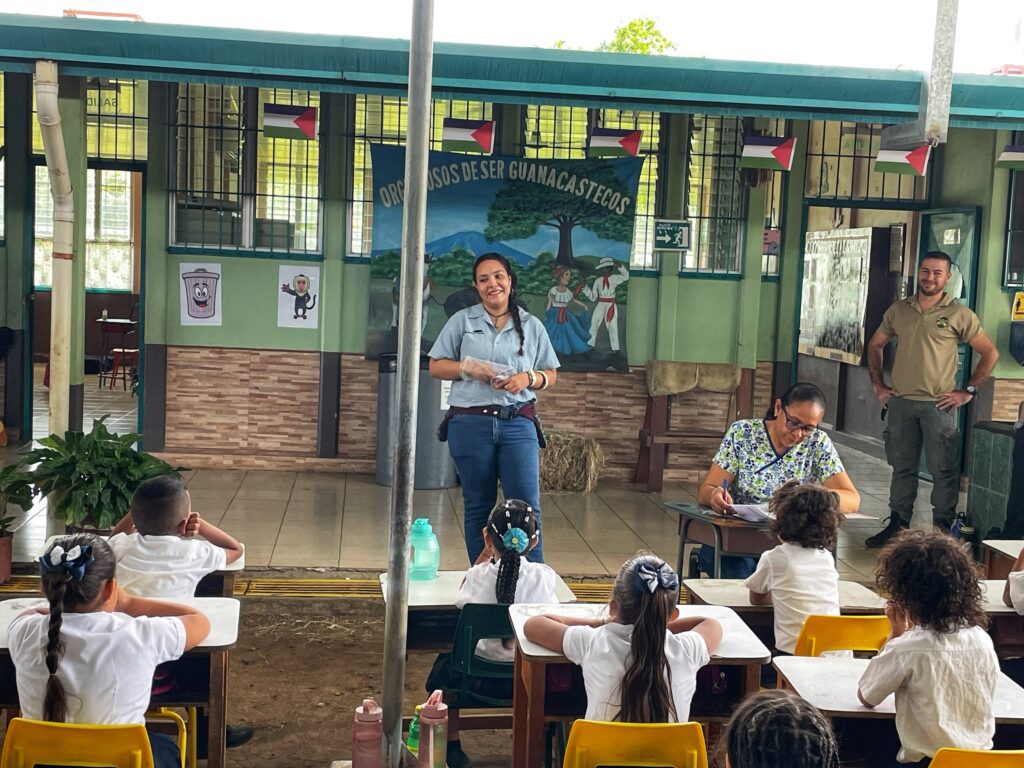
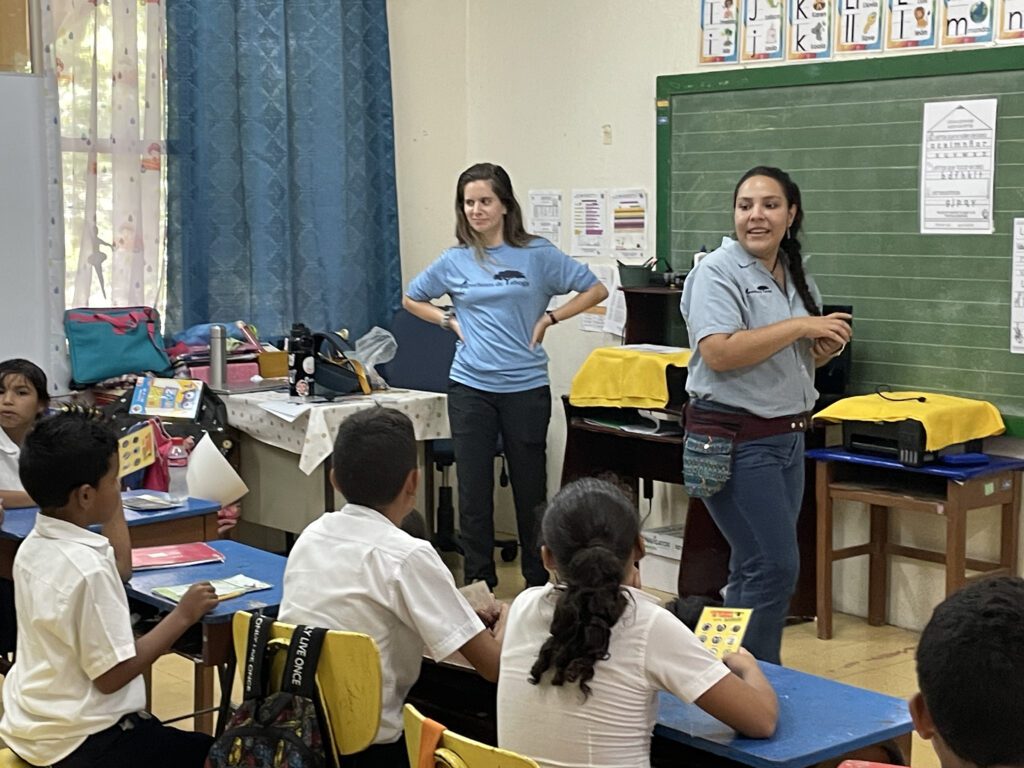
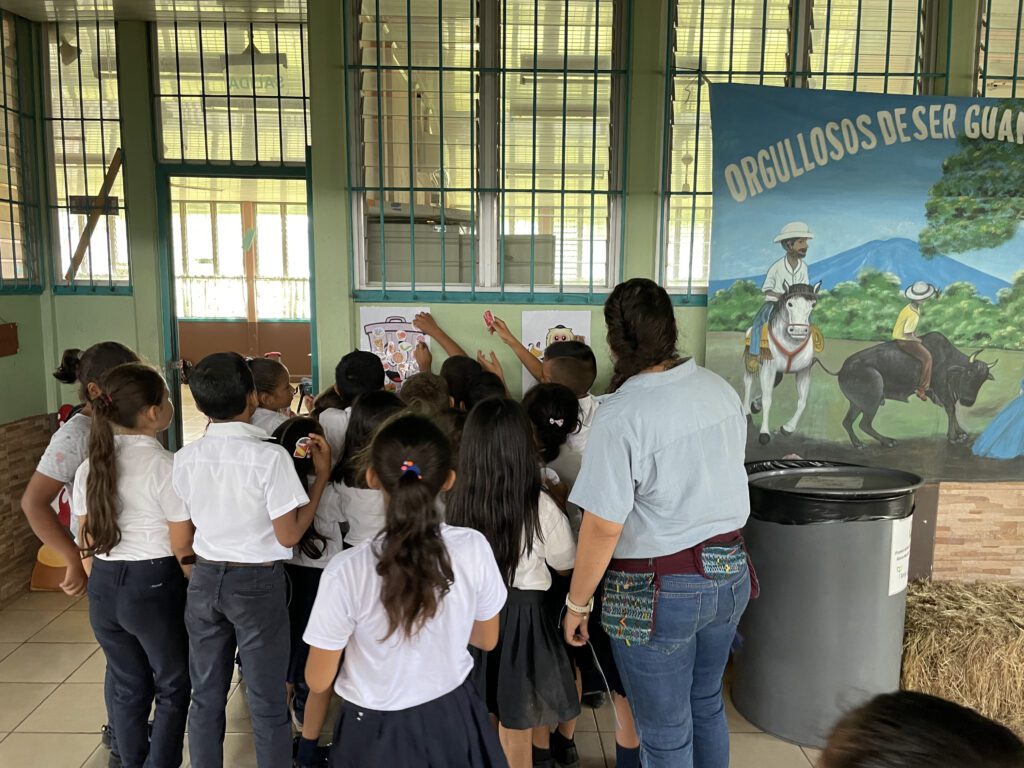
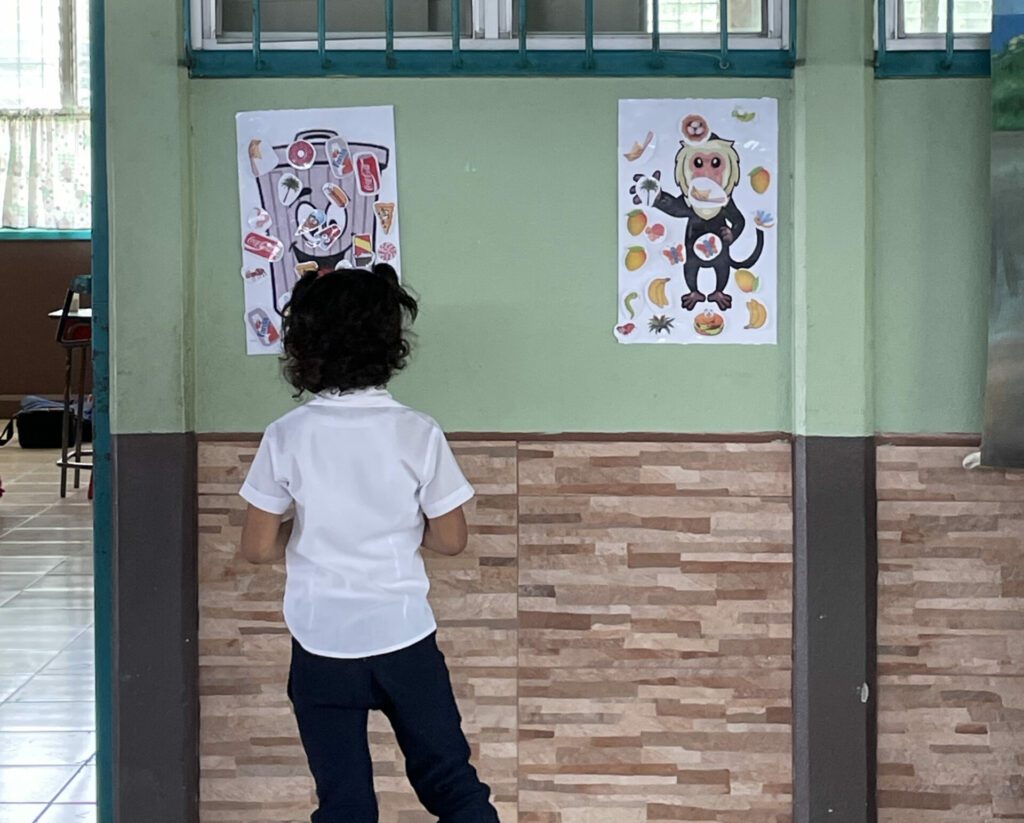
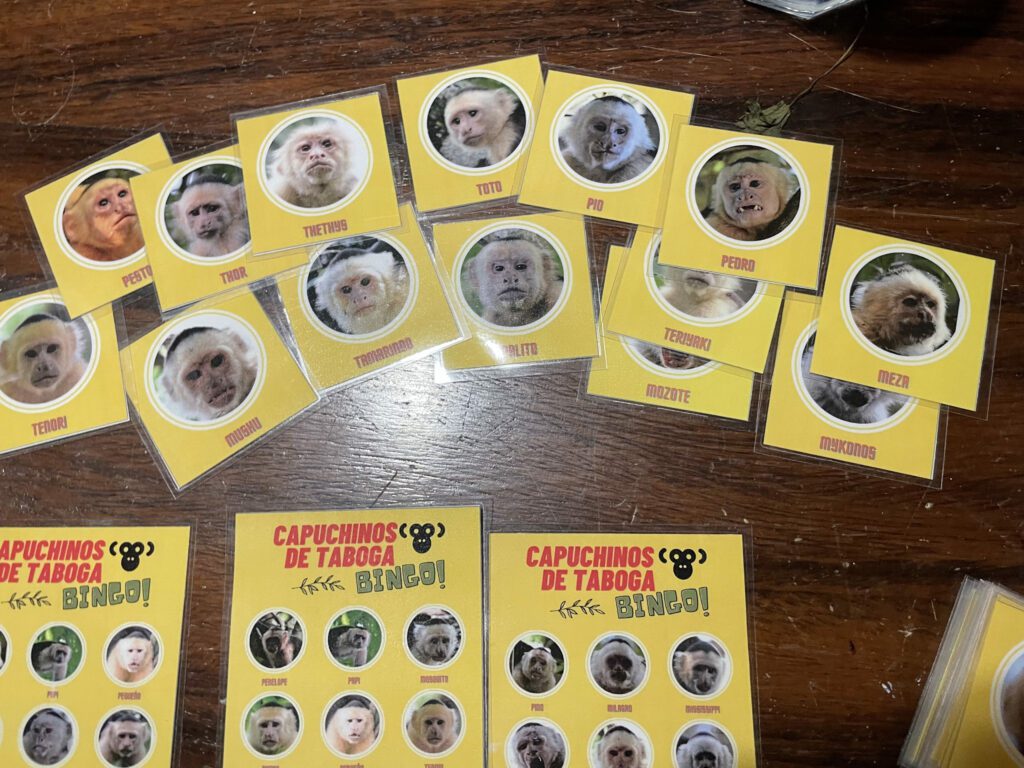
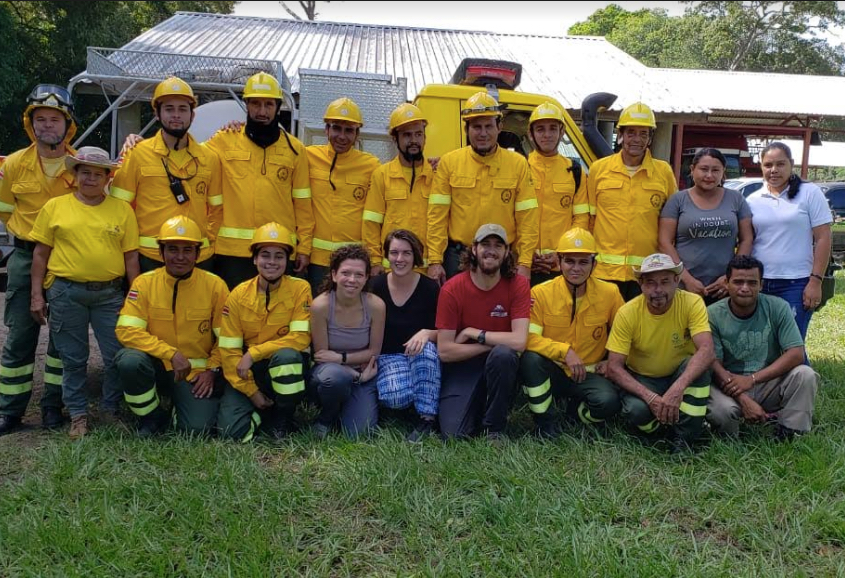
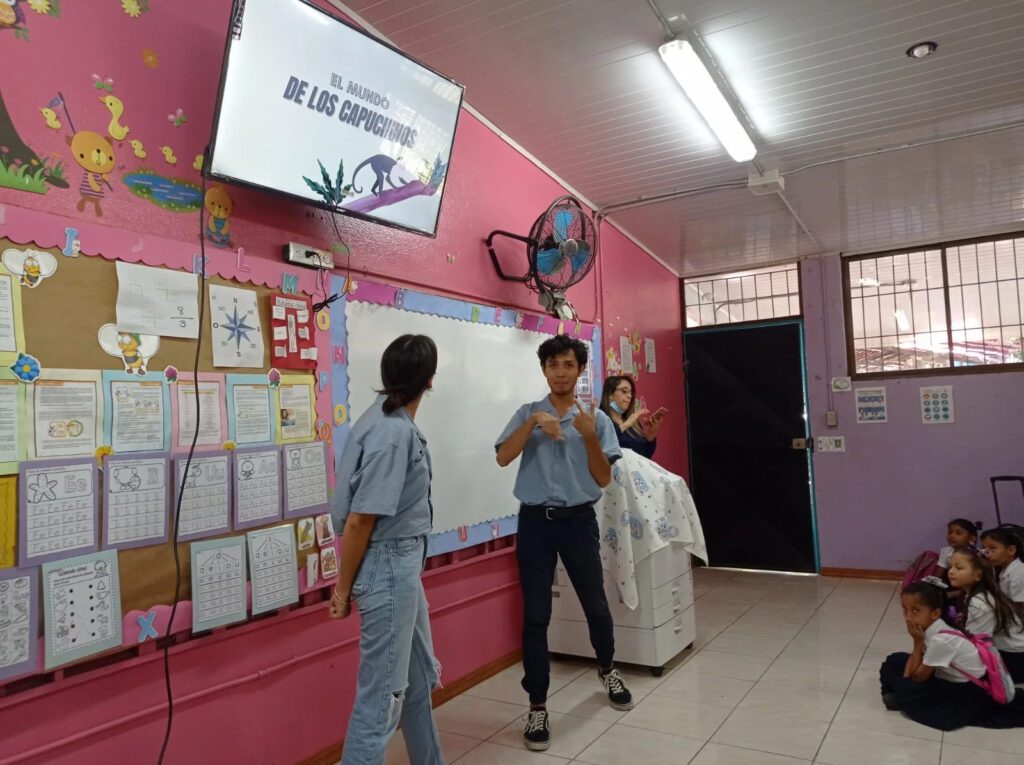
One of the top priorities of the Capuchinos de Taboga project is to engage in community outreach and education initiatives. We are dedicated to increasing scientific awareness, aiding in conservation efforts, and improving sustainability in the area. Every year our team engages in numerous public engagement and outreach efforts in Costa Rica and in the United States. We take as much pride and enjoyment in collaborating with local institutions, universities, schools, and communities as we do in our research.
We love engaging with future scientists in Guanacaste community. In the last year we’ve engaged in several science education and naturalist days at the Escuela de San Luis and the Escuela de Taboga. We have developed several activities for kids of all ages from Taboga Monkey Bingo to Monkey Trivia. These activities teach young kids about the amazing behaviors of capuchin monkeys, how we recognize and study them, and why we shouldn’t feed them. For example, in one of our games we teach kids about capuchin diets by giving each student a photo of a food item which they had to choose to either stick onto the poster of a monkey or the poster of a rubbish bin. Food items included fruits, plants and various junk food products. Many students are horrified to learn that capuchin diets include small mammals such as squirrels. In order to teach the lesson that even if a food item is monkey friendly, humans still should not give the food, images that included a human hand with a banana, were to be put in the bin.
Our research team plays an important role in conservation and sustainability efforts in Guanacaste. We partner closely with the Sistema Nacional de Áreas de Conservación (SINAC) to aid in a variety of initiatives to helping fight forest fires, participating in reforestation projects, and contributing to important conversations, workshops, and committees on biodiversity and sustainability.
Currently, we give several talks a year to students and the public interested on primate behavior in both Costa Rica and in the US. There are just too many to list here but make sure to check out our Outreach Blog to find out more. We have several future endeavors including starting a field school, teaching classes on the flora and fauna of the area to students in Costa Rica and from US institutions and creating a fully sustainable field station.
Our goal is for Capuchinos de Taboga to be an international field station that fosters research, training, and collaboration. We have had several undergraduates, mastersstudents, and PhD students at our field station from around the world working and living together. We work closely with local universities to provide training for Costa Rican students interested in animal behavior and ecotourism. To date we’ve worked closely with nine UTN ecotourism and environmental management students. They have learned our data collection techniques and designed and implemented their own research projects.